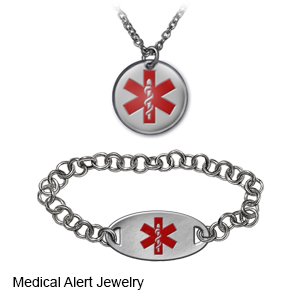Thrombocytopenia
Medically reviewed by Drugs.com. Last updated on Apr 2, 2024.
What is thrombocytopenia?
Thrombocytopenia is a condition that develops because your body does not have enough platelets. Platelets are cells that help your blood to clot. Your body may not be making enough platelets, or it may be destroying too many platelets. When platelets become low, your risk for bleeding increases. Severe bleeding may become life-threatening.
What increases my risk for thrombocytopenia?
- Pregnancy
- Dialysis
- Blood transfusions
- Medicines, such as heparin or NSAIDs
- Cancer treatments, such as chemotherapy or radiation
What are the signs and symptoms of thrombocytopenia?
Your signs and symptoms depend on your platelet count. A lower platelet count will cause more severe symptoms. You may not have any symptoms. You may bleed or bruise more easily or have tiny red or purple spots on your skin. You may feel tired or bleed from your gums or nose. You may have blood in your urine or bowel movement. You may have heavy menstrual bleeding if you are a woman.
How is thrombocytopenia diagnosed?
Your healthcare provider will ask if you take any medicine or supplements. Tell him or her if you have other health conditions. You may need blood tests to count your platelets or time how fast your blood clots.
How is thrombocytopenia treated?
- Medicines can help increase platelet production and prevent bleeding.
- Platelet transfusions may be used to decrease the risk for bleeding or to stop severe bleeding.
Treatment options
The following list of medications are related to or used in the treatment of this condition.
What can I do to prevent or manage bleeding?
- Care for cuts, scrapes, or nosebleeds. Examine your skin for minor bumps, scrapes, and cuts. These injuries can increase your risk for bleeding that can become life-threatening. Apply firm, steady, pressure to cuts or scrapes. Use gauze or a clean towel. If possible, elevate the body part above the level of your heart. If your nose bleeds, pinch the top of your nose until bleeding stops.
- Be careful with skin and mouth care. Use a soft washcloth when you bathe. Use a soft toothbrush to keep your gums from bleeding. Use lip balm to prevent your lips from cracking. Apply lotion to dry skin. Keep your nails trimmed. If you shave, use an electric shaver.
- Do not strain when you have a bowel movement. The strain can increase pressure in your brain and cause bleeding. Ask your healthcare provider about a stool softener or laxative if you are constipated. Do not use enemas or suppositories.
- Use a cool mist humidifier to increase moisture in your home. Moisture may help prevent coughing or nosebleeds. Coughing can increase pressure in your brain and could cause bleeding.
- Avoid activities that may cause scratches or bruises. You may not be able to play contact sports such as football, hockey, or wrestling. Ask your healthcare provider which activities are safe for you.
- Do not take aspirin or NSAIDs. These medicines can cause you to bleed and bruise more easily.
What do I need to know about medical alert identification?
Wear medical alert jewelry or carry a card that says you have thrombocytopenia. Ask your healthcare provider where to get these items.
 |
Call your local emergency number (911 in the US) for any of the following:
- You have chest pain, tightness, or heaviness that spreads to your shoulders, arms, jaw, neck, or back.
- You have weakness on one side of your body, a severe headache, trouble speaking, or a change in vision.
When should I seek immediate care?
- You have bleeding that does not stop after you elevate and place pressure on the area.
- You vomit blood or material that looks like coffee grounds.
- Your arm or leg feels warm, tender, and painful. It may look swollen and red.
- You suddenly feel lightheaded, dizzy, or weak.
When should I call my doctor or hematologist?
- You have bleeding from your gums, mouth, or nose.
- You have irregular or heavy menstrual bleeding.
- You have blood in your urine or bowel movement.
- You have more bruises or small red or purple spots on your skin.
- You have questions or concerns about your condition or care.
Care Agreement
You have the right to help plan your care. Learn about your health condition and how it may be treated. Discuss treatment options with your healthcare providers to decide what care you want to receive. You always have the right to refuse treatment. The above information is an educational aid only. It is not intended as medical advice for individual conditions or treatments. Talk to your doctor, nurse or pharmacist before following any medical regimen to see if it is safe and effective for you.© Copyright Merative 2024 Information is for End User's use only and may not be sold, redistributed or otherwise used for commercial purposes.
Learn more about Thrombocytopenia
Treatment options
Care guides
- Heparin-Induced Thrombocytopenia
- Immune Thrombocytopenia
- Immune Thrombocytopenia in Children
- Purpura
- Thrombotic Thrombocytopenic Purpura
Symptoms and treatments
Further information
Always consult your healthcare provider to ensure the information displayed on this page applies to your personal circumstances.
